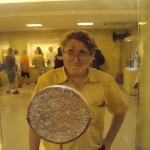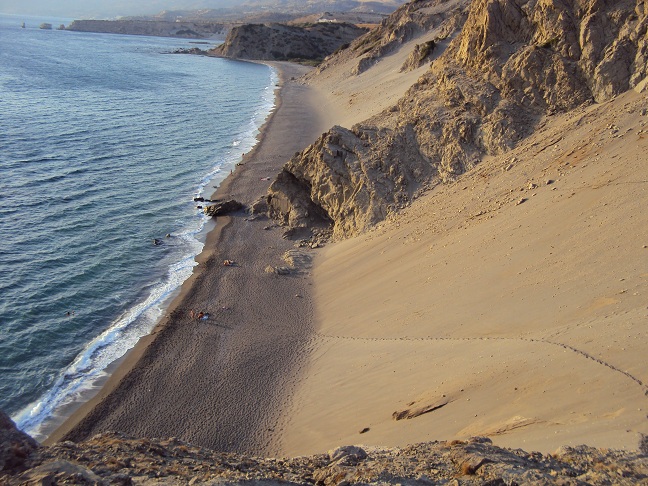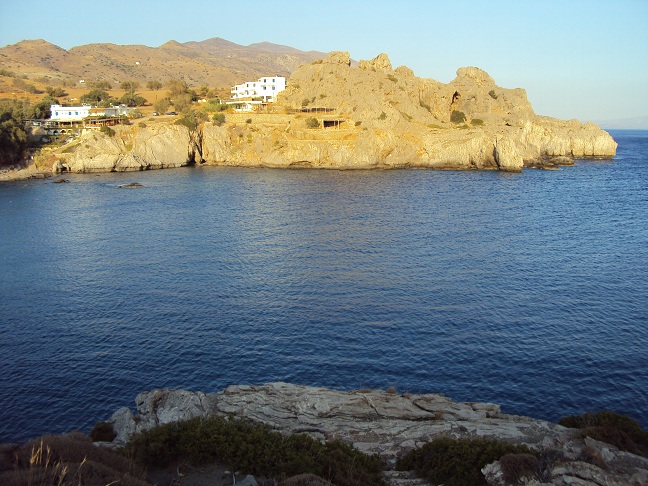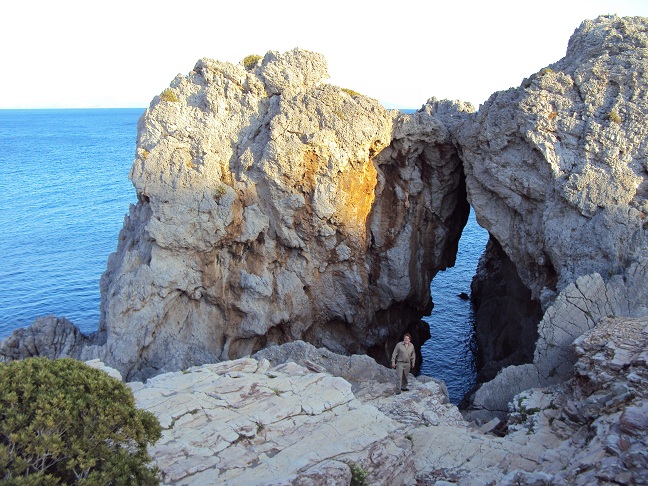We relaxed for a day, catching up on sleep, then engaging in nothing more strenuous than writing, sipping kafe hellenikos, and enjoying the beaches. Aghios Pavlos can only be reached by a winding mountain road, and the coast here is rough, with only an occasional cove. There is perpetual wind, a blessing in the Cretan heat, but the hotel must keep baskets of rocks even in the office, to hold down papers, and tablecloths are clamped to tables. The beaches are civilized (i.e., clothing optional) and have only a few bathers at a time. Coves are separated by geologically interesting and visually pleasing rock formations.
The hotel’s manager made a few phone calls for us, and arranged for us to rent a car without the usual papers. If this is true, there will be no difficulty reaching the remaining archaeological sites I want to see.
The food is excellent, but, with my late pet Stampy fresh in memory, I can’t bring myself to eat any of the rabbit dishes. I stick to lamb. Having herded, and been kicked by many a foul-tempered sheep, I have no qualms about eating them.
In the local newspaper, there’s an amazing story. The Phaestos Disk has been translated. This is a bronze disk, uncovered at Phaestos, bearing an inscription in the unknown Minoan language. It has defied decipherment for nearly a century. The two scholars responsible for solving this are names known to me, and the article seems genuine, though of course not sufficiently technical. But it appears that it is now proven that Minoan was an Indo-European language. This has long been a theory supported by a small minority of scholars, but never accept ed by the mainstream. I presume that it places Minoan as a relative of Luwian, and other Anatolian languages. If this is the case, then the Minoans do not represent an ancient “pre-Indo-European” stratum in the region, but probably were relatively recent migrants to Crete before the flourishing of their urban civilization. The text on the disk is apparently a prayer to the Mother Goddess. [FALSE ALARM. The article is not genuine. I should have known better than to give credence to a local Greek newspaper. The article seems to be based on an April press release from Georgia, and a dubious translation connecting the disk’s language to West Kartwellian languages — which are not Indo-European. The writers of the article confuse “Caucasic”, “Caucassian” and “Indo-European”. This is jumbled up with ongoing work done by the British scholars, and they seem to be misquoted, or flatly falsified. The fact that the article was translated from Greek further muddies the whole thing.]
The wildness and isolation of the southern coast suits our mood, especially since we lack nothing in terms of comfort.




0 Comments.